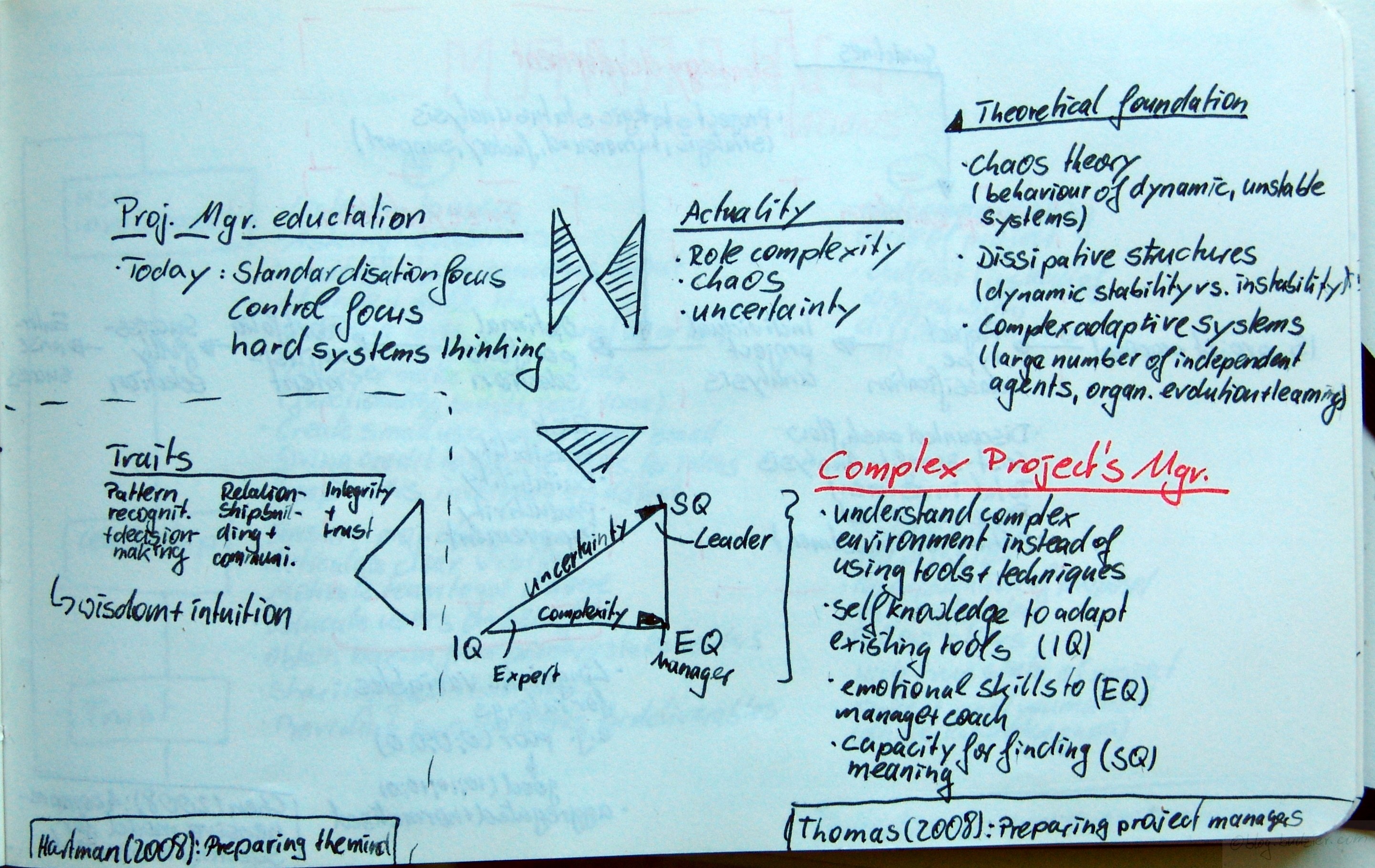Thomas, Janice; Mengel, Thomas: Preparing project managers to deal with complexity Advanced project management education; in: International Journal of Project Management, Vol. 26 (2008), pp. 304-315.
doi:10.1016/j.ijproman.2008.01.001
Hartman, Francis: ; in: International Journal of Project Management, Vol. 26 (2008), pp. 258-267.
doi:10.1016/j.ijproman.2008.01.007
Complexity is a meme that just doesn’t want to die. I wrote before about articles on the foundamentals of complexity theory and project management, about the use of autonomous cells in project organisations and how they prevent complex project systems from failing, and the complex dynamics of project entities in a programme. Not surprisingly this meme has spread into the coaching and project management education world where there is some money to make of it.
Thomas & Mengel argue that the current project manager education is not suited at all to prepare for complex projects. The focus on standardisation, control, and hard systems thinking stands in direct opposition to the actuality of projects, which show high complexity in roles, high degrees of chaos and uncertainty.
Theoretically Thomas & Mengel base their discussion on three complexity/chaos theory concepts
- Chaos theory – explaining the behaviour of dynamic and unstable systems
- Dissipative structures – explaining moment of dynamic stability and instability
- Complex adaptive systems – explaining behaviour of systems with a large number of independent agents, and organisational evolution and learning
So what does it take to be a Complex Project’s Manager?
Thomas & Mengel propose that understanding the complex environment is far more important than using tools and techniques of project management. Furthermore they outline three key capabilities to manage complexity
- IQ – possessing the self-knowledge to adapt existing tools
- EQ – possessing the emotional skills to coach and manage people
- SQ – possessing the capacity for finding meaning
In their framework Thomas & Mengel see most of today’s project managers as Experts, these are project managers heavy on the IQ side of their IQ-EQ-SQ-Triangle. The authors see two developmental strategies. One is coping with uncertainty by moving towards the sense-making SQ corner of the triangle and becoming a Leader. The other developmental direction is coping with complexity by strengthening the EQ corner and becoming a Manager.
Similar ideas are discussed in the paper by Hartman. Altough he does not call the elephant on the table complex project management but he names it dynamic management. Blink or not Blink – Hartman argues that wisdom and intuition are the two desired qualities in a leader with a mind for dynamic management. Furthermore he identifies three traits absolutely necessary
- Pattern recognition & decision-making
- Relationship building & communication
- Integrity & trust
